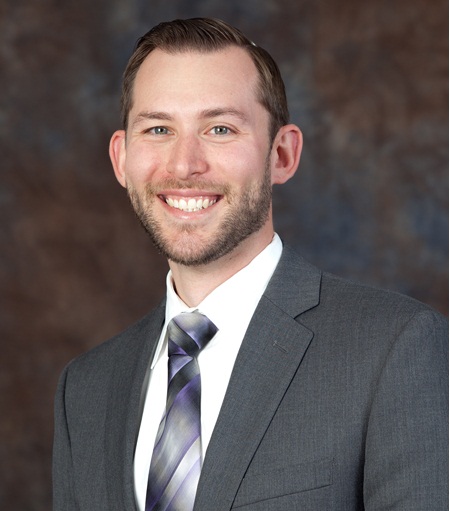A D’var Torah for Parshat Vayechi by Rabbi Scott Shafrin
As we start this new year, we read one of the most helpful, though often overlooked, stories in our Torah. As his life comes to an end in Parshat Vayechi, our ancestor Jacob gathers his family together and looks to connect with each of them, beginning with Joseph and, more importantly, his grandsons Ephraim and Menashe. He brings them close and gives them a blessing, saying:
By you shall [the People of] Israel invoke blessings, saying, ‘May God make you like Ephraim and Menashe.’ (Genesis 48:20)
Even today, many families still use this blessing formulation to bless their sons, with similar blessing formulas for both daughters and gender non-binary children. But it is curious that the blessing of these two characters should be so powerful, since we know almost nothing about them. They do not speak anywhere in Torah, and this is the one scene where they even have a role to play. So what does it mean to be “like Ephraim and Menashe”? What qualities did these two possess and what deeds did they do that we should try to emulate?
In all of the commentaries and analyses, two ideas stand out powerfully to me. The first is that, of their family members who came down to Egypt, Ephraim and Menashe were the only ones born in Egypt. They were the first generation of our people to know that they were part of B’nai Israel, part of a Jewish people, but not live in a cloistered Jewish enclave. They were able to have identities that fit in with mainstream society, able to adapt and be part of their native land, while at the same time maintaining their connection to their family, religion, heritage, and sense of self.
Sign up to receive (M)oral Torah in your inbox each week.
Many of us feel that same tension today. It is hard to maintain a strong Jewish identity and still feel like we are co-equal citizens, especially here in America where the idea of who is a “real” American is so often thrown in the face of minority groups. It can often seem that to be fully a part of both our Jewish heritage and our American culture, we must give up parts of one or the other that we treasure. Ephraim and Menashe were both fully accepted by their family and by the society in which they lived. For so many of us, we long for the day where we do not feel othered by one facet of our identity, and we pray for the day when we can live in our world as Ephraim and Menashe lived in theirs.
Beyond the circumstances of their birth, Ephraim and Menashe teach us how to live. Rabbi Harold Kushner explains that they become a source of blessing “perhaps because they were the first brothers in the Bible to get along peaceably, after the conflicts that marred the lives of Cain and Abel, Isaac and Ishmael, Jacob and Esau, and Joseph and his brothers.” In fact, in all of Torah, there are precious few examples of siblings who do not hurt, deceive, steal from, and otherwise harm their siblings. Because of this, Torah tries to teach us repeatedly to treat our siblings better, establishing ethical rules and norms for us to live by throughout the ages.
It’s not just our blood relations with whom we need to create bonds of compassion, care, and understanding, but all people. We are told to love our neighbors as ourselves (Leviticus 19:18), that all of Israel cares for one another (Talmud Shevuot 39a), and that one who can prevent the misdeeds of another, or even of everyone in the world, and fails to do so is responsible for those misdeeds (Talmud Shabbat 54b). We are each connected, and no matter how we enter each other’s lives, we are responsible to care for one another and to create a better world by treating each other as sacred sparks, created in the divine image.
Find more commentaries on Parshat Vayechi.
Maya Angelou once described the bonds of siblings thus:
“I don’t believe an accident of birth makes people sisters or brothers. It makes them siblings, gives them mutuality of parentage. Sisterhood and brotherhood is a condition people have to work at.”
Just as Ephraim and Menashe became the gold standard of siblings in the eyes of Jewish tradition, so too are we called to extend a loving hand to all the people we come across, no matter who they are, how they may differ from us, or what else may be going on in our own lives.
That is how we solve the giant ethical quandaries that confront our world: We build real relationships with others, we value and sustain people as the sacred and special individuals they are, and we work to create conditions where each person can live and grow and thrive. We bless our children to be like Ephraim and Menashe because we hope that they will not only treat their blood relatives well but also will endeavor to build the bonds of brotherhood and sisterhood with everyone they meet.
Rabbi Scott Shafrin is currently the Associate Rabbi at Kol Rinah, a Conservative congregation in St. Louis, MO, as well as the founding director of the Kol Rinah Education Hub (KoREH). He also sits on the Rabbinical Assembly’s Social Justice Commission, where he is the RA representative to the Poor People’s Campaign: A National Call for Moral Revival.

